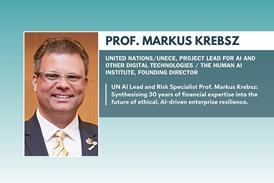All IT systems run by Ireland’s Health Service Executive (HSE) are today (14 May) shut down following a ransomware attack.
Paul Reid, Chief Executive of HSE, told national broadcaster RTE: “It’s a very sophisticated attack, not just the standard attack. It is impacting all of our national and local systems that would be involved in all of our core services …
“Our first priority is to contain the issue. This is a major incident for us.”
The HSE has received no ransom demand so far and was at a very early point in understanding the threat, he added.
A spokesperson for the HSE – Health Service Executive in full – said: “We have taken the precaution of shutting down all our IT systems in order to protect them from this attack and to allow us fully assess the situation with our own security partners. We apologise for inconvenience caused to patients and to the public.”
The HSE email system is not working and staff in many departments are having to resort to paper records, slowing down processing patients.
The state’s child and family agency Tusla was hit, too, with its emails, internal systems and the portal through which child protection referrals are made not working due to the cyber-attack
Describing the problem as being with information-logging IT systems, master of the Rotunda Hospital in Dublin, Professor Fergal Malone, said: “We use a very common system throughout the HSE for registering patients and it would seem this was the entry point.”
The Irish Independent reported the attack involved the human-operated Conti ransomware, a double-extortion method as it encrypts information and also threatens to expose it.
The newspaper said the gang behind Conti has boosted carrying out more than 180 attacks since the malware was discovered last year.
The HSE is receiving support from cyber security experts, the Irish police force, defence forces and government.
Some hospitals cancelled out patient appointments as a precaution, but Ireland’s Covid-19 vaccination programme is continuing as usual.
Health officials also said life-saving equipment in hospitals is unaffected, all patients are safe, and the national ambulance service is operating as normal with no impact on emergency vehicle call handling and dispatch nationally.
However, medical oncologist Seamus O’Reilly at Cork University Hospital said: “Our main concern is patient safety and results that might be outstanding, laboratory data that needs to be available to manage patient care today. It’s very distressing for patients.”








No comments yet